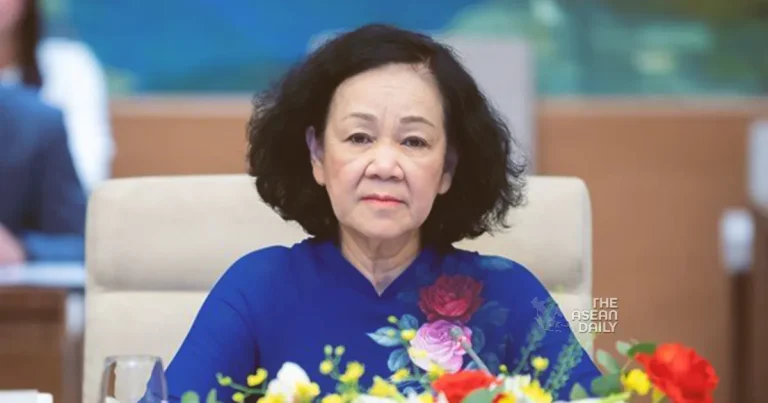16-5-2024 (HANOI) In a stunning development that has sent shockwaves through Vietnam’s political establishment, the country’s fifth-ranking leader, Thuong Thi Mai, has resigned from her positions, marking the third top official to depart within the span of two months. The ruling Communist Party announced Mai’s exit on May 16, citing “violations and shortcomings” committed during her tenure in a previous leadership role between 2016 and 2021.
The high-profile resignations, which have engulfed the upper echelons of the one-party state, come amidst an escalating anti-corruption campaign that has raised questions about potential infighting within the investment-reliant nation, once lauded for its stability.
Mai, 66, held a powerful position as the sole female member of the influential Politburo, Vietnam’s elite decision-making body. Additionally, she served as a permanent member of the Party Central Committee’s Secretariat and was widely considered a potential candidate for the presidency.
With Mai’s departure, only two of Vietnam’s top five leaders remain in their positions – the aging party chief Nguyen Phu Trong and Prime Minister Pham Minh Chinh. The recent upheaval has left the country’s political landscape in disarray, with foreign investors, upon whom the Southeast Asian manufacturing hub heavily relies, expressing growing concerns over the administrative paralysis caused by the frequent leadership changes and ever-expanding investigations prompted by the “blazing furnace” anti-bribery drive.
The turmoil began in March when former president Vo Van Thuong abruptly resigned, a mere year after taking office to replace another dismissed president in an unprecedented series of high-profile departures.
In a bid to restore stability and fill the vacant positions, the Communist Party convened a meeting of its central committee on May 16. During this pivotal gathering, four new members were elected to the 18-member Politburo, which now stands at just 12 members following Mai’s resignation.
Among the newly appointed Politburo members are Nguyen Trong Nghia, 62, the party’s propaganda chief and head of a 10,000-strong cyber-security unit, and former central bank governor Le Minh Hung, 53. Additionally, Bui Thi Minh Hoai, 59, succeeded Mai as the head of the mass mobilization committee and became the sole female representative in the powerful decision-making body.
The fourth new Politburo member, Do Van Chien, 62, serves as the president of the Fatherland Front, an organization involved in social policy development.
The party has yet to announce when the remaining two vacant Politburo positions will be filled, but it has stated that it will propose new candidates for the roles of House Speaker and President to the National Assembly, which is set to convene for a regular session starting on May 20.




